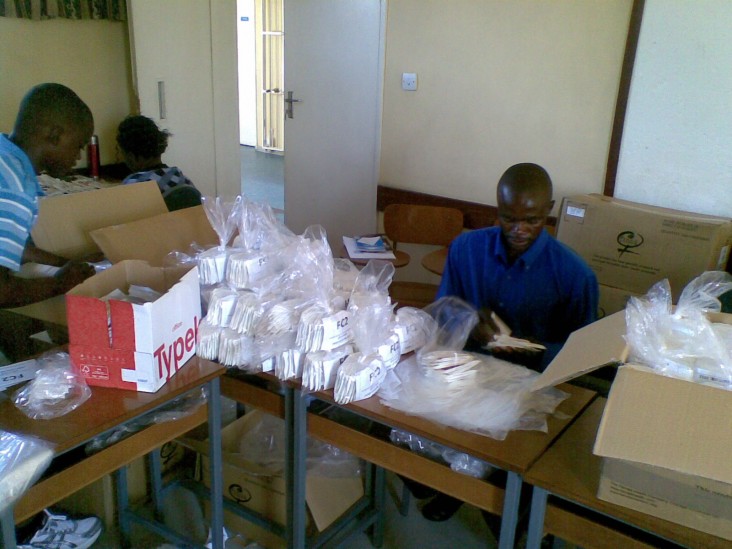
Challenge
Until recently, female condom distributors in Zimbabwe received female condoms in cartons of 1,000. Delivering the goods to individual clinics was a painstaking exercise because teams had to count out product in quantities ranging from 20 to 12,000 per delivery. Moreover, a single delivery round could last up to 20 working days and cover two or three districts, making it difficult to deliver the right quantity to the right place. Not surprisingly, teams sometimes skipped the counting process to save time, choosing to rely on estimated counts. In addition, all the handling meant that some condom packets became soiled and went to waste. Zimbabwe needed to figure out a way to make its deliveries more accurate, avoid wasting product through over handling, and improve record keeping for its female condom program, which is a vital part of USAID’s reproductive health and HIV/AIDs program.
Initiative
To improve the situation, USAID is helped by its partner JSI to repackage each box of 1,000 into 50 smaller clear plastic bags containing 20 female condoms each. The female condom’s expiry date and batch numbers were also made visible. Once repackaged into twenties with labels in place, the plastic bags were tied and returned to the carton and the carton was sealed with packaging tape. Within three weeks, JSI was able to repackage 1.7 million condoms, relying on a team of 40 people hired for the job. For quality control, each staff member was asked to discreetly append his/her initials in one top-hand corner of the carton to make sure that, should there be negative feedback on a given carton, the information could be easily linked to him or her.
Results
The repackaging reduced the time that team leaders spent at each clinic during a delivery run, increased the accuracy of stock counts and consumption calculations, and made it easier for health facilities to dispense those products which were set to expire first. It eliminated repeated handling, and helped motivate team leaders to do complete physical counts, which improves the accuracy of data collected for female condoms. It also saved money: in per diem, fuel, and vehicle wear-and-tear, the re-packaging process translates to approximately $10,000 in savings.







Comment
Make a general inquiry or suggest an improvement.